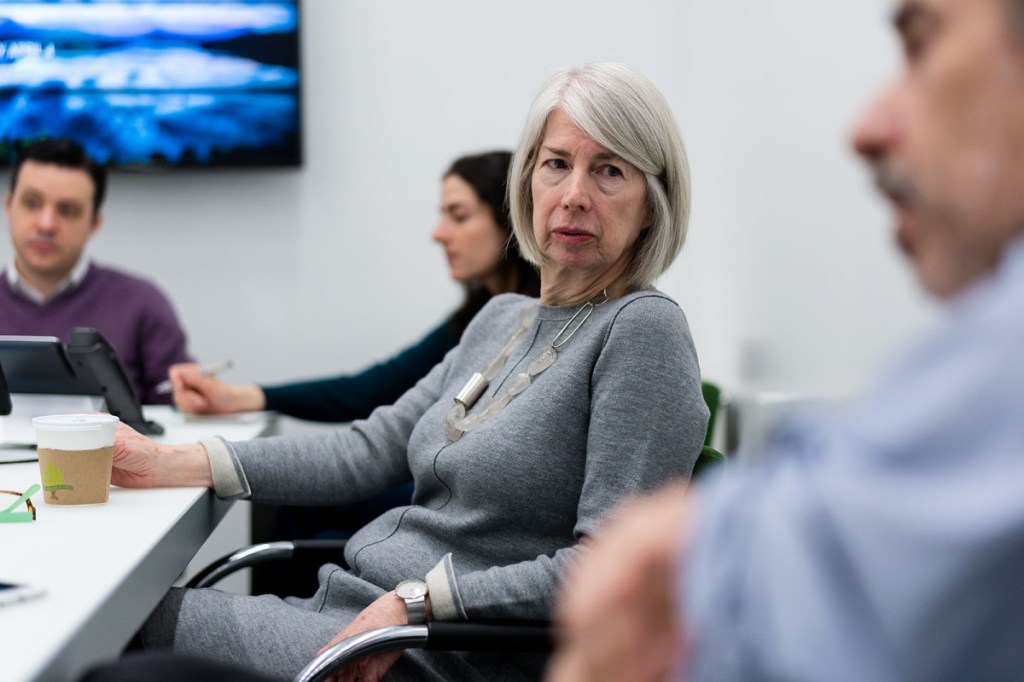Colby College alumna and former Morning Sentinel editor Rebecca Corbett was awarded a Pulitzer Prize in Public Service on Monday afternoon — along with the New York Times investigative team she led — for the reporting that exposed Harvey Weinstein and helped propel the #MeToo movement.
Corbett, the assistant managing editor at the Times, and reporters Jodi Kantor and Megan Twohey first published an article that chronicled more than two decades of sexual harassment on the part of Weinstein, a powerful Hollywood producer, in October 2017 after a five-months-long investigation.
The award is shared jointly with Ronan Farrow of The New Yorker “for explosive, impactful journalism that exposed powerful and wealthy sexual predators … thus spurring a worldwide reckoning about sexual abuse of women.”
“Sexual harassment is an old problem, one that journalists have exposed in case after case for many years. But in attacking the issue anew with incredible tenacity, investigative tools and institutional commitment from the very top, The Times revealed pervasive misconduct and identified the culture of complicity in workplaces that shielded abusers while failing to protect women,” Corbett said in a speech to colleagues at the Times on Monday after the awards were announced. “That reporting set off an extraordinary global call to action.”
The Times’ submission also included stories of sexual harassment at media companies, restaurant kitchens, Silicon Valley startups and Ford factories.
“The Weinstein story was a great investigative story that arrived at a moment when the country was anxious to have a certain kind of debate and discussion, and it kicked off that debate and discussion,” Times Executive Editor Dean Baquet told Colby Magazine. “It helped that it was unassailable, completely accurate, and bulletproof.”
Reporters and editors who have worked with Corbett told the magazine that she is “thoughtful, demanding, meticulous and tireless — and a critical figure at the highest level of journalism.”
“I’ve been a journalist for 20 years, and she is hands-down the most impressive, engaged editor I’ve ever worked with,” Twohey said of Corbett.
“Because she’s a modest personality, it’s easy to miss the scale of her journalistic ambition,” Kantor said. “It’s not personal ambition for herself. Her true belief is that journalists can confront the powerful and can change society. That is at her core.”
Corbett was not available for comment Monday evening. However, she will be attending Colby’s graduation in May and will receive an honorary degree.
As the editor charged with overseeing the investigative teams at the Times, Corbett has been a part of other Pulitzer Prize and award winning work, including stories that helped reveal secret surveillance of Americans by the National Security Agency in 2005 and that the NSA was monitoring Americans’ international internet traffic without warrants or public notice a decade later.
During her time at Colby, Corbett studied literature and worked as an editor for the Colby Echo. After she graduated in 1974, Corbett was hired as an assistant state editor at the Morning Sentinel.
Corbett told the Colby magazine that her years in Waterville taught her that stories have an impact on real people.
“It’s more than being accurate,” Corbett said. “It’s understanding the big picture as well as the facts that you’re putting into stories.”
She later spent more than 20 years at the Baltimore Sun before being hired by the Times.
Corbett told the magazine that while she thought the Weinstein coverage would result in “a big Hollywood story,” she didn’t anticipate the impact it would have around the world in triggering the toppling of powerful men as well as the lasting conversation it prompted regarding sexual assault and harassment.
“People talk about this as a generational shifting, one of the biggest impact stories in a long time,” she said. “I think it clearly still is resonating.”
Emily Higginbotham — 861-9239
ehigginbotham@centralmaine.com
Send questions/comments to the editors.




